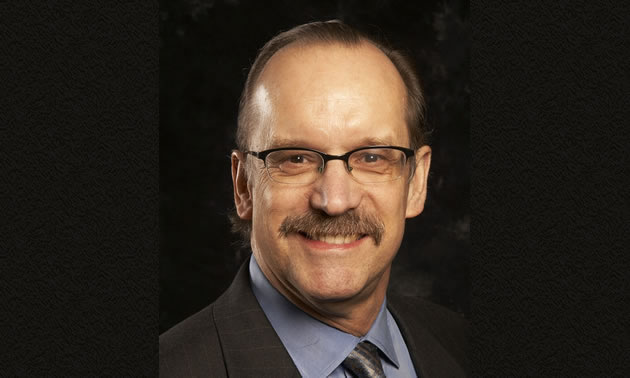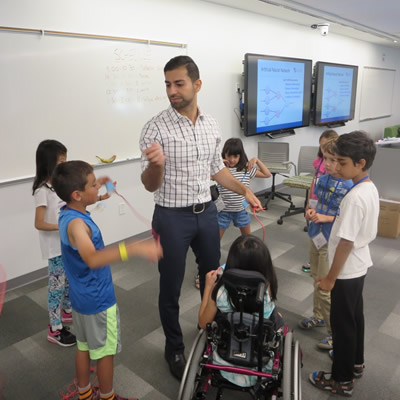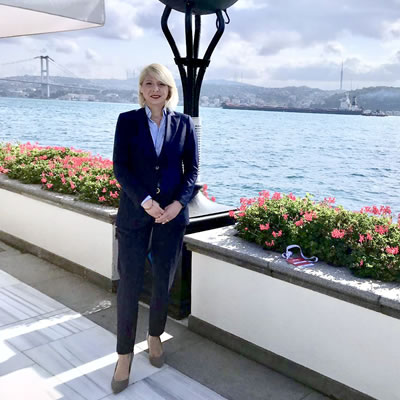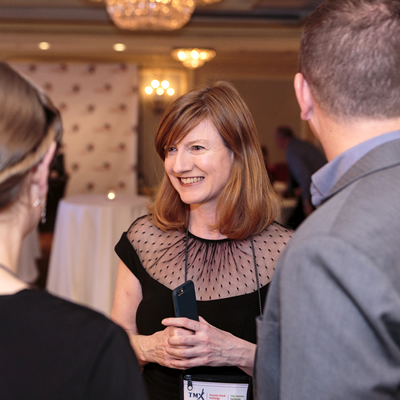UCore will benefit from experienced new COO
Love what you do - that’s the philosophy Ken Collison has followed through more than 40 years in the mining industry

Ken Collison is happy to go north to Alaska for the UCore project — Photo submitted
Ken Collison is a master of reinvention. A graduate of the University of Saskatchewan with an engineering degree and a masters in mining, he has had a career full of moves-- both of the physical variety and the upward mobility variety--with a long list of mining companies. Through it all, Collison has never stopped learning or loving what he does.
Today, Collison is the newest member of the Ucore Rare Metals Inc. team as their chief operating officer and says he’s looking forward to seeing their projects move forward.
Did you grow up wanting to have a career in mining?
No, not really. I got into mining in rather a peculiar way. I was raised in Flin Flon, Manitoba, where I could look out my window and see a head frame, and so when I went and left for university, the one thing I thought I knew for sure was that I didn’t want to go into the mining industry. So I took chemical engineering and didn’t like it--in fact I got asked to leave--and then I got a job working underground as a miner in Stull Lake, Manitoba. I loved it. So I decided to go back to university and take mining engineering. And then when I graduated with my masters I was very fortunate that the very first job I took was at the Pamour Mine for Noranda in Timmins, working for a guy named John Kalmet, who taught me more than six years of school did.
You’ve said that continuous learning is why you love this industry. What have you learned over the course of your career?
At Pamour I learned how to run a mine on a shoe string. It was a very low grade gold mine when the price of gold was $35 an ounce, so it was a really good place to start a career because you learned how to run a mine and not have it “fat.” And from there I went to work for Rio Algom.
Rio Algom was great, they gave me all kinds of different opportunities, and I sort of became their guy that looked after the design and construction of new lines, the design and construction of expanding lines, or the guy that would go into a mine that’s not working well and fix it. So I got a lot of varied experience and I worked for Rio Algom for quite a while. I also got involved in permitting and that sort of thing there.
I guess my philosophy has been do what you enjoy, and I certainly enjoyed that, and I had lots of opportunities to try all kinds of different things.
Following your time at Rio Algom you left the mining industry all together. What were you doing during that time?
I designed a program for the ministry of environment for the state of Alaska called Village Safe Water, and I looked after a group of engineers that looked after and built the sewage water systems for the villages. And that was really interesting. I got exposed to all different cultures. I got to travel to a lot of the Alaskan native villages throughout the northern parts of the state and that really exposed me to different cultural issues and gave me a lot of understanding of the different cultures. It was really, really interesting and I got to do things in my life I never dreamed I’d get to do. I got invited to go caribou hunting in the Arctic and different things like that, things that you don’t often get a chance to experience, so that was a lot of fun. And then I got a call, from John Kalmet actually, and hired on with Blue Pearl.
How has mining changed over the course of your 40-year career?
Obviously the technology has changed a lot with trackless and remote-controlled machinery. I think that’s one of the big things. Certainly computers have changed it a lot, so technology has had a big impact, but I think the people in mining have changed as well. I think there’s a different emphasis for people now. Of course, it depends on who you work for, but I think for most companies, there’s a big shortage of skilled professionals in the mining industry. So I think that’s had a big impact, because there’s a lot more opportunity for the people that are involved in it. And it makes for a lot more interesting work.
It’s a lot more interesting when you’re very busy and doing a lot of different things, and when the industry is short of people, the people that are the professionals may get an opportunity to do things they may not have gotten an opportunity to do otherwise.
I think there couldn’t be a better time to be a young mining engineer than right now. I think it just makes for a lot of opportunities for younger professionals and a lot of chances to do things, like I said, that they wouldn’t get to do otherwise.
What made you accept a position with Ucore?
I leaped into Ucore because I think it’s a heck of a good project, good people to work with. And it’s in southeast Alaska. So having lived in Juneau for 15 years, it was like going home. It’s a great project in rare earths, which I didn’t know hardly anything about, so that was really interesting when you’re learning something. So now we’re doing a preliminary economic assessment on that and then we’re doing a feasibility study. So that’s been fun and exciting and I enjoy that. What I hope to bring to Ucore is to get their permits as quick as we can, do a thorough environmental job to make sure that we know what we’re doing before we start, and then to have finished the PEA [preliminary economic assessment], which we should get done in the next couple of months. Once our feasibility study is complete, and I don’t have any doubt in my mind that it’s going to be economically feasible, then we get into the design and development and get the mine up and running and employing people. There’s nothing more gratifying than going to a place that’s nothing but bush, basically, and working there for a number of years, and all of a sudden there’s a couple of hundred people there, supporting their families with good paying jobs and living well. That’s probably one of the most gratifying things you can do.
Any advice for people who are thinking about entering a mining career?
Probably the same advice I gave to my own boys when they asked me “What should I do when I grow up, Dad?” I’d say do what you love. Find a niche that you love and chase it. If you do what you love, you’ll do it well and you’ll enjoy yourself. You won’t mumble when the alarm goes off in the morning, because you’ll look forward to going to work. And if you enjoy what you doing and you work with good people, you’ll do well.




